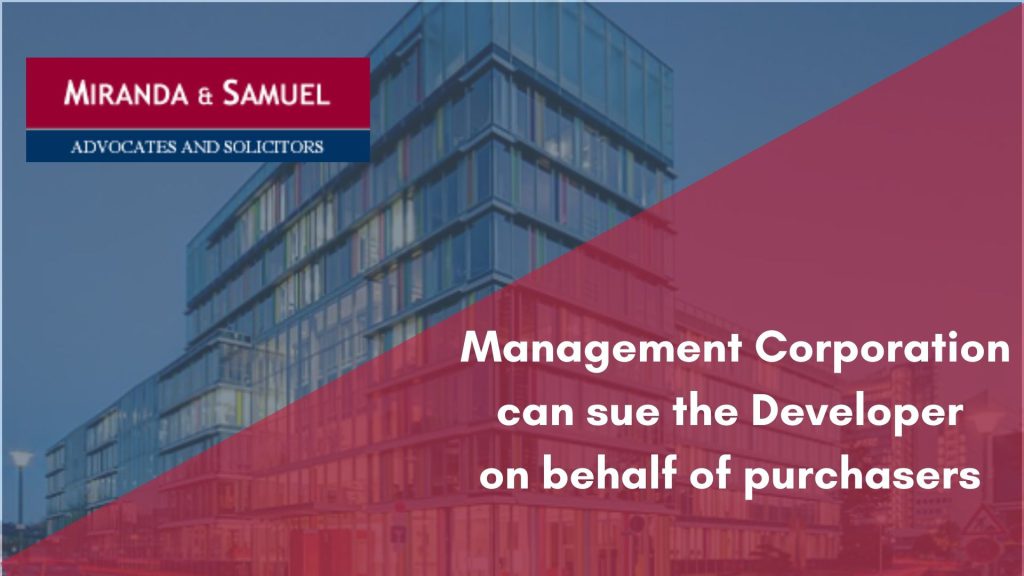Traditionally, a purchaser would sue the developer for any defects in the property development project. A novel issue is whether the management corporation has a cause of action against the developer for defects in a condominium. This issue was addressed by the High Court in the case of Dua Residency Management Corporation v Edisi Utama Sdn Bhd [2021] MLJU 140.
Facts
It was a case where a management corporation of a high-end condominium located in Kuala Lumpur took an action against the developer and former property manager for various defects in the common property such as water leakage that was discovered between 2010 and 2019. Following inspections carried out by the developer’s project consultants and other building inspectors engaged by the joint management committee, it was revealed that the condominium had latent defects concerning the construction movement joints, swimming pool and open deck. The plaintiff then pleaded three cumulative or alternative causes of action, breach of statutory duties and/or negligence against the first defendant, and breach of contract and/or negligence against the second defendant.
–CLICK HERE FOR PDF – –
Decision
The High Court held that the management corporation has no legal standing to initiate and sustain an action of breach of contract against the defendants unless the purchasers have assigned or novated their sale and purchase agreement to the management corporation. Such action can only be taken by the purchasers personally against the developer.
Also, the court held that there is no statutory duty owed by a developer under the Street, Building and Drainage Act or the Uniform Building By Laws as the legislation did not intend to impose such statutory duty upon the developer.
Nevertheless, the Court held that the developer was negligent in respect of the swimming pool defects. It was held that that there was sufficient proximity between the management corporation and developer in this case as the developer had participated continuously in the maintenance and management of the condominium. Also, it was plain that the condominium was fraught with defects. The Court held that it was just and reasonable to find that the developer owed a duty of care to the management corporation to ensure good workmanship in the condominium’s construction in accordance with the agreed specification and approved plans in the sale and purchase agreement.
Accordingly, the developer was liable for negligence in respect of the swimming pool’s defects. By failing to ensure the workmanship of the waterproofing system applied to the swimming pool is fit and suitable for the purpose to prevent the ingress of water in the swimming pool, the developer had breached its duty of care.
However, on the facts, the developer was not liable for defects caused by poor maintenance such as the construction movement joints and open deck.
As for the former property management, the court held that no negligence could be imposed based on the policy considerations.
Key Points to Take Note
- The management corporation can sue the developer for negligence as there was sufficient proximity between the management corporation and the developer to hold that the developer owes a duty of care to the management corporation. The management corporation could represent the collective purchasers to initiate a negligence action against the developer as the management and maintenance of the condominium are directly under its care.
- In addition to contractual duties, the developer also owed a duty of care to ensure good workmanship in the building construction. The developer may be liable for latent defects in the building due to their negligence in constructing such building notwithstanding the fact that the building was in good habitable condition when handed to the new management company.
– By George Miranda, Joy Sam Jia Qian, Kong Chai Yin –
This article is for general information purposes only and does not constitute legal or professional advice. It should not be used as a substitute for legal advice relating to your particular circumstances. Please note that the law may have changed since the date of this article.





